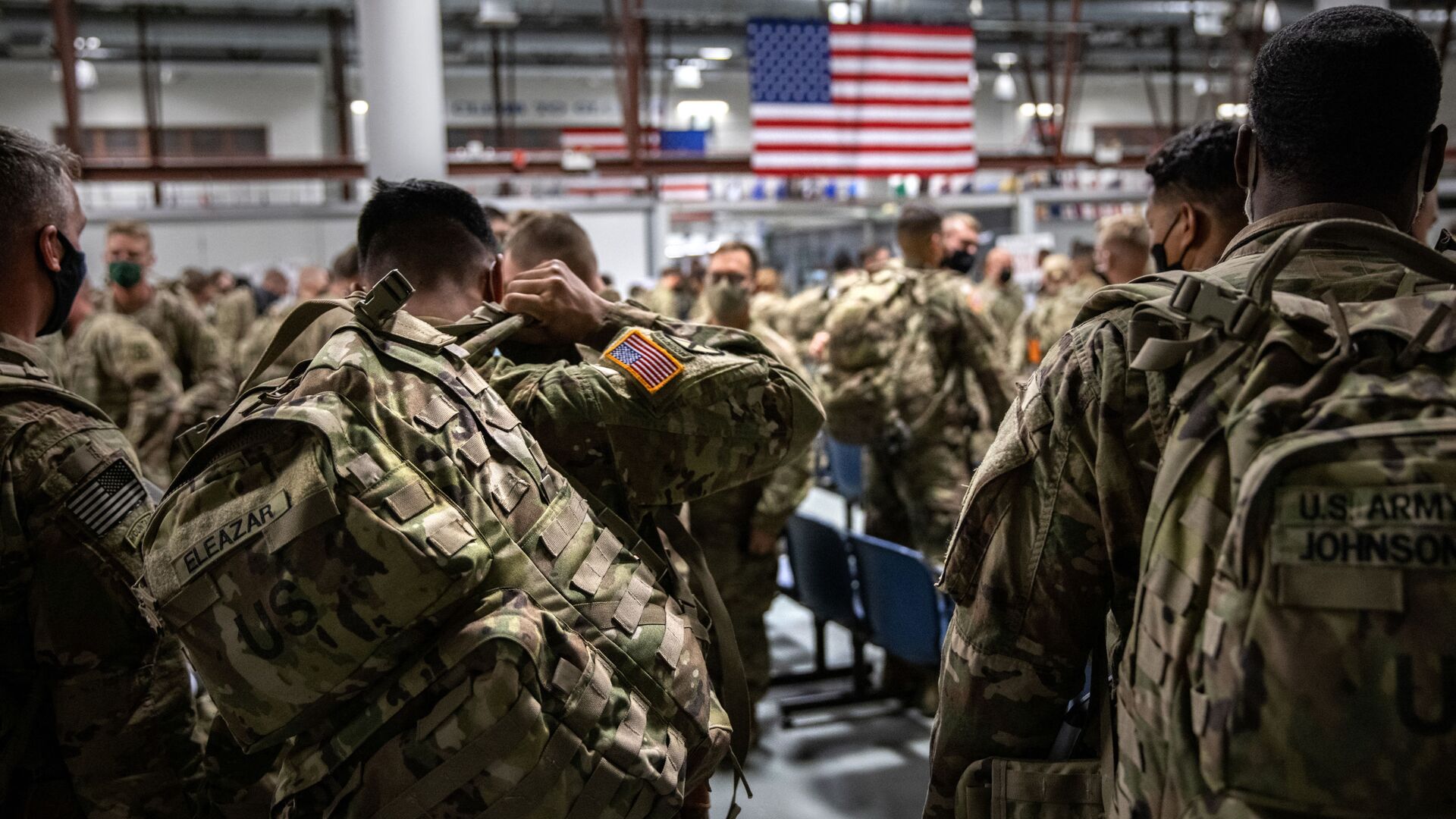With Over 96% Vaccination Rate, US Army Will Begin Discharging Soldiers Who Refuse Covid Shot

© AFP 2023 / JOHN MOORE
Subscribe
The US Army said on Wednesday that soldiers who refuse to be inoculated against SARS-CoV-2, the virus that causes COVID-19, will be discharged from the service if they don’t have a special waiver.
"Army readiness depends on soldiers who are prepared to train, deploy, fight and win our nation’s wars,” US Army Secretary Christine Wormuth said in a Wednesday statement. "Unvaccinated soldiers present risk to the force and jeopardize readiness."
The Army began mandating Covid vaccination last September, giving active duty soldiers until December 15, 2021, to get fully vaccinated and National Guard units, the US Army’s militia reserve force, until June 30, 2022. By the December deadline, 96% of the 478,000-strong active duty force had elected to get their Covid inoculation shots.
Moreover, across the 1.4 million active duty members of all US service branches, an even higher vaccination rate of 98% had been reached by that time.
While the Army has relieved two battalion commanders and four other Regular Army leaders of their command posts, and issued general officer written reprimands to 3,073 other soldiers, the service hasn’t parted with anyone solely for refusing a Covid vaccine shot. However, now that will begin to change.
A new Army directive lays out for commanders the process of discharging those who refuse to comply with the mandate “as expeditiously as possible.”
“Service members separated due to refusal of the COVID-19 vaccination order will not be eligible for involuntary separation pay and may be subject to recoupment of any unearned special or incentive pays,” the Army said. “As an exception, Soldiers who will complete their separation or retirement, or begin transition leave, on or before July 1, 2022, will be granted a temporary exemption and will be permitted to complete their separations or retirements.”
The Army’s timetable has lagged behind other services, which had earlier vaccination deadlines and began kicking out refusals last year.
While the number of vaccine refusals in the US military is small at 1-2% of the force - much smaller than in the US population at large, where about 15% have still not gotten a single shot - the phenomenon has nonetheless attracted the attention of academics.
An article published by the Council on Foreign Relations policy think tank on December 30 of last year highlighted some trends among the vaccine-hesitant in the US military, including that young, junior service members are the most likely to refuse a shot and women and non-Hispanic Black service members were both less likely to initiate vaccination themselves.
The article found several reasons for the hesitancy, including misinformation, mistrust of public institutions, both military and nonmilitary, and personalization of risk - that is, how dangerous they consider their inaction to be.
However, while studies across the US public have highlighted distinct disparities in vaccination rates by political affiliation, with almost 91% of Democrats being vaccinated but only about 60% of Republicans, the CFR explicitly rejected that finding, claiming “there is no data to support that assumption.”
“Most of those who are hesitant appear to be making a personal statement, not a political one, in refusing the vaccine, which comports with historical experience. From smallpox vaccine hesitancy in the eighteenth century to anthrax vaccine hesitancy in the late twentieth century, American service members have demonstrated a history of skepticism that predates today’s hyperpoliticized environment,” the article said.
The US Department of Defense requires a wide array of vaccinations of its service members, many of which are common in US society, such as chickenpox, measles, mumps, rubella, tetanus-diphtheria, and meningitis, but also vaccination against various other more exotic or uncommon illnesses, depending on the risk and occupation. Some of those can include anthrax, rabies, smallpox, typhoid fever, yellow fever, and Haemophilus influenzae type B.


